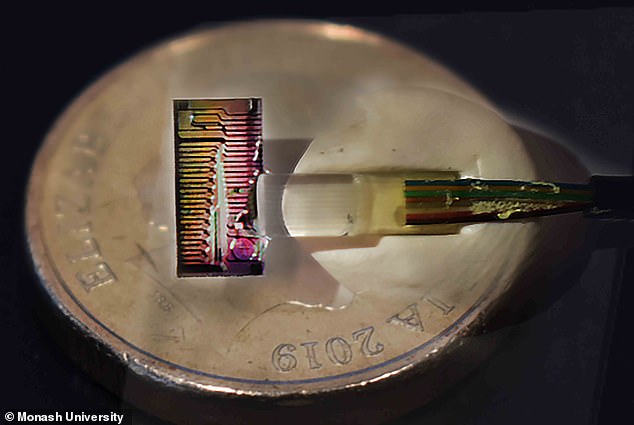Scientists in Australia have managed to break world records by recording the highest ever broadband speeds. The team is comprised of scientists from Monash, Swinburne, and RMIT universities. The scientists claim that with this new record-breaking speed that could download 1,000 HD movies in less than a second. The recorded speed is 44.2 terabits per second.

The average broadband speed in Australia, in comparison, stands at about 11 megabits per second. The latest 44.2 TBPS connection is 4 million times faster than the regular connection. Dr. Bill Corcoran who is also the co-lead author of the study has said that these findings reveal that the existing infrastructure could be upgraded to cater to the ever-rising demands of internet connections.
Dr. Bill said, ‘We’re currently getting a sneak peek of how the infrastructure for the internet will hold up in two to three years’ time. It’s really showing us that we need to be able to scale the capacity of our internet connections.’ He further added that this is because of the unexpectedly high number of people who are relying on the internet for remote work, streaming, and socializing.

The team made use of a new device that replaced 80 lasers with a single piece of equipment that is known as a micro-comb. It is a smaller and lighter telecommunication hardware unit. This breakthrough has the potential to cater to the high-speed internet connections of about 1.8 million households in Melbourne, Australia, and simultaneously cater to the billions spread all over the world during the peak times.

Dr. Bill also said, ‘We’ve developed something that is scalable to meet future needs. And it’s not just Netflix we’re talking about here – it’s the broader scale of what we use our communication networks for. This data can be used for self-driving cars and future transportation and it can help the medicine, education, finance, and e-commerce industries, as well as enable us to read with our grandchildren from kilometers away.’
Arnan Mitchell from RMIT said, ‘Long-term, we hope to create integrated photonic chips that could enable this sort of data rate to be achieved across existing optical fiber links with minimal cost.’ On the other hand, Professor David Moss another leader of the study said, ‘Micro-combs offer enormous promise for us to meet the world’s insatiable demand for bandwidth.’
The findings of the research have been published in the journal Nature Communications.


